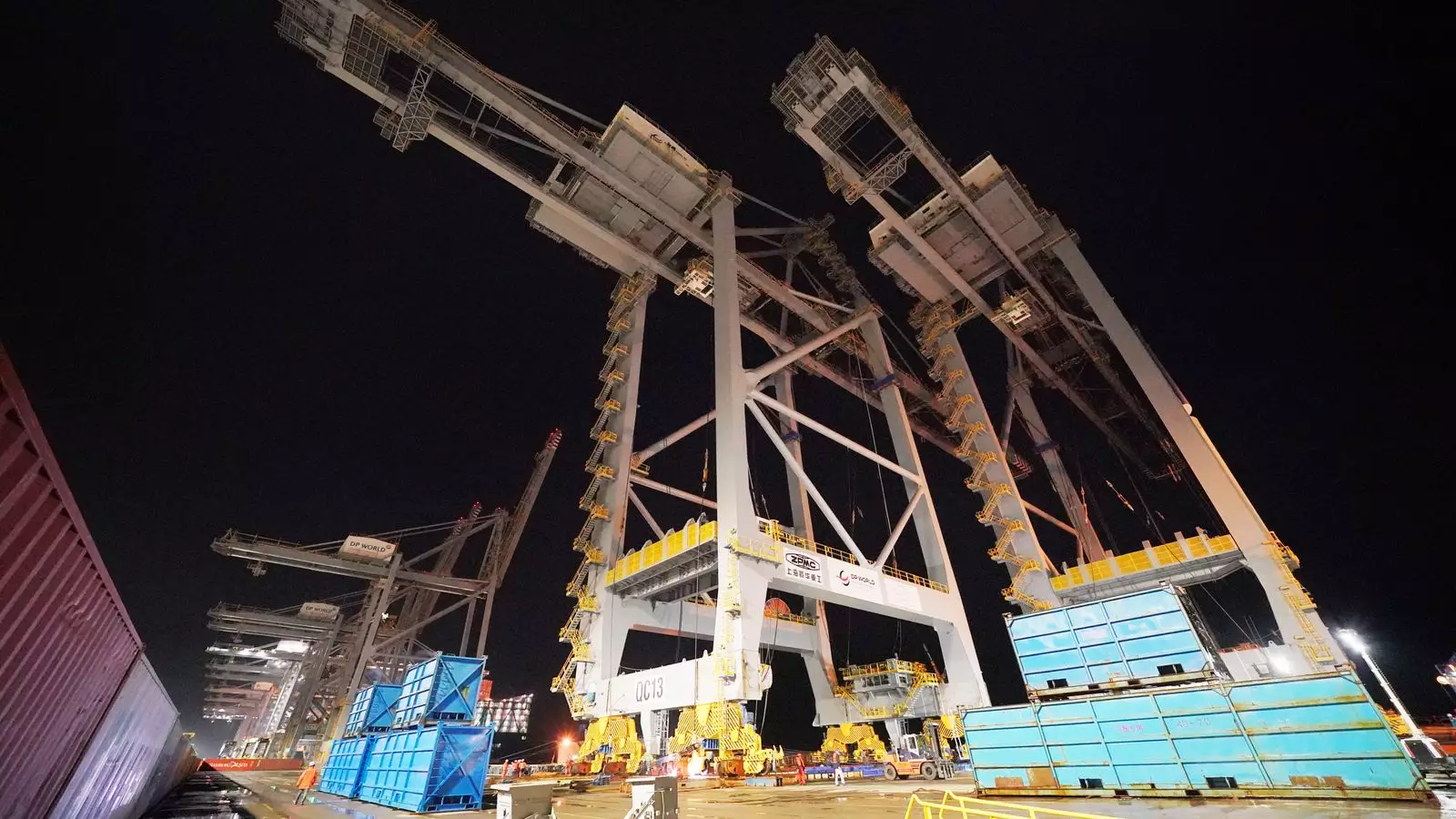In the landscape of international business, investment announcements often come with a backdrop of political maneuvering and external pressures. The recent million-pound commitment by DP World to enhance the London Gateway port epitomizes this phenomenon, showcasing how intricate the relationship between government officials and corporate entities can be. Originally heralded as a landmark investment, the announcement’s integrity was placed in jeopardy by reputational turmoil linked to the shipping company—the kind that no amount of financial backing could easily brush aside.
The saga began with comments from Transport Secretary Louise Haigh that labelled DP World, which owns P&O Ferries, a “rogue operator.” This inflammatory rhetoric struck a nerve, especially in the wake of P&O Ferries’ 2022 controversy over laying off 800 British crew members only to replace them with lower-cost foreign counterparts. The political fallout from such actions carried with it implications that rippled through the corridors of power, compelling the government to step in for damage control.
Business and Trade Secretary Jonathan Reynolds noted that extensive discussions were essential to stabilize the situation, resulting in an imperative need for “conversations” to mend the strained relationship between key stakeholders. Reynolds’ comments underscore a potent reminder that public officials often tread a fine line between safeguarding national interests and managing the imperatives of foreign investments.
The navigation of these corridors highlights a lack of synergy between ambitious economic strategies and the political realities that often disrupt them. It illustrates the notion that, in politics, even seemingly solid financial commitments can become precarious in the face of public outcry or critical commentary from high-ranking officials.
At the center of this drama was an upcoming investment summit, designed to showcase the UK as an attractive destination for financial investment. Originally slated to attract a diverse array of industry leaders, the summit now found itself embroiled in controversy over its perceived timing and relevance. Questions lingered as to why certain influential figures, such as Elon Musk, were absent from the list of attendees—a notable absence that further highlighted the intricate web of influence, public perception, and investment potential.
Reynolds’ evasiveness when questioned about Musk’s absence raised skepticism. He cited the importance of focusing on “who can bring the kind of investments that will make the biggest difference,” hinting at the strategic filtering imposed by political organizers. However, such decisions can have unforeseen ramifications, as the exclusion of high-profile figures may deter potential future investments, especially when pitted against their known proclivities for public engagement.
The eventual reaffirmation that DP World’s £1 billion investment would proceed as planned was perhaps seen as a triumph of crisis management. A representative for DP World, speaking in the aftermath of this tumult, acknowledged productive dialogues with the government and expressed eagerness to participate in the forthcoming summit. This reestablishment of confidence is critical—not just for DP World, but for the UK’s image as a conducive setting for business growth.
Yet, the haunting specter of the prior collapse involving British seafarers weighs heavily on the proceedings. The need for government representatives to engage continuously with both domestic and foreign investors is increasingly crucial in this politically charged climate. The discussion surrounding DP World offers a sobering lesson for the government: any lapse in managing public relations can undermine even the most ambitious economic initiatives.
As the UK continues to navigate its economic recovery, the underlying necessity for sustainable investment policies becomes paramount. The collision of public sentiment, corporate responsibility, and government action remains a delicate balance. Policymakers must engage transparently with constituents while promoting an environment that attracts foreign investment, challenging them to cultivate a narrative that aligns both public interest and economic ambition.
The situation surrounding DP World reflects a broader conversation about investment in the UK, marked by both opportunity and inherent risk. As the government and corporate entities move forward, the lessons learned from this encounter will likely resonate through future engagements, prompting a more nuanced approach that seeks to align fiscal imperatives with the social fabric of the nation. The stakes have never been higher, and the lens of accountability has sharpened in the face of public scrutiny.


Leave a Reply